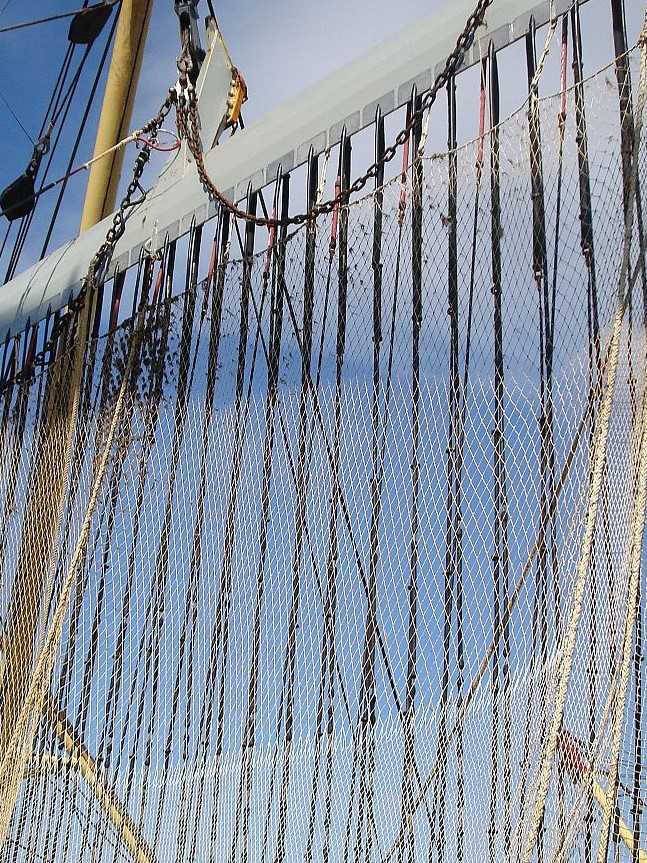This week a majority of MEPs voted for a ban on controversial pulse fishing; a vote that should send a shockwave through the European Commission and force it to think again about expanding this technique. The final shape of legislation will now depend on ‘trialogue’ negotiations between the European parliament, the Council and Commission.
Pulse fishing uses electricity to shock flatfish or shrimp into nets, making them easier to catch. However, these electrical pulses are known to cause suffering to fish and the technique is thought to lead to more juvenile fish being caught, so exacerbating the problems of over-fishing and depleting fish stocks. The technique is totally indiscriminate in its destruction and it has been shown that fishermen using the method discard up to 60% of their catch.
Currently, fishing using electricity is banned in the EU, but 5% of the fish quota is allowed to be caught under an ‘innovative techniques exemption’ whereby certain new techniques are allowed for ‘scientific research’. This allocation has been largely hoovered up by the Netherlands fleet using pulse fishing as an alternative method for catching flatfish such as sole and plaice. But the Belgium fleet is also experimenting with the technique to catch brown shrimp and the UK fleet are using it for catching razor clams. All in all, 97 ships have been licenced to use the pulse fishing technique in the North Sea.
The technique has been widely condemned by campaigners and a petition against the practice has reached over 100,000 signatures. It has also been strongly opposed by small-scale fishermen who feel threatened by a new gear type which competes with them.
Of course, pulse fishing is not the only destructive form of fishing. Alternative more traditional methods such as ‘heavy trawls’ are also highly problematic. Dragging a heavy beam across the bottom of the sea in order to force the fish to emerge is not only hugely destructive to the seabed it is also highly energy intensive. But we should not be looking to substitute one bad technology with another; we need to work at phasing out all destructive methods of fishing. We should also be applying the precautionary principle to prevent expansion of untested technologies and using scientific evidence to assess how harmful pulse fishing or any other technique is on fish and the marine environment.
But discussions about different fishing techniques and fishing gear are actually a bit of a distraction from the important debate we need to have about how we end overfishing, preserve and increase our fish stocks, protect our vital marine environment and deliver truly sustainable fisheries management that benefits coastal fishing communities.
In particular, we need to see simplification of regulation on fishing mesh sizes, as demanded by fishermen, and clear controls on the maximum number of juvenile fish that can be caught. But the EU has failed to agree these important regulations and so, while Green MEPs backed the ban on pulse fishing, they voted against the full Conservation of Fishery Resources report, which didn’t establish common objectives at an EU level.
We know that EU fisheries management can work well; the fact that North Sea cod stocks are at a 35-year high is proof of this. But if the Commission proceed with their current proposals the EU will be taking a major step backwards from the significant advances made in the reform of the Common Fisheries Policy a few years ago.
Here in the UK we are preparing to leave the EU. Fishermen and coastal fishing communities were some of the most vocal groups in the Brexit debate and an estimated 92% of fishermen voted for Brexit. The EU Common Fisheries Policy was often cited by Brexiteers as an example of ‘all that is wrong with the EU’ and held up as an area where the UK could ‘take back control’ after we leave the EU. The truth is now dawning: it is easier to win the debate with a simple slogan that is wrong than engage in policy solutions to complex problems.
The ongoing debates around fishing techniques and quotas and how we maintain both a thriving fishing industry and preserve our marine environment reveal the need for transnational cooperation to manage our fisheries and the seas that are not contained by national borders. Such an approach is needed whether the UK is inside or outside the EU. The fish that swim Europe’s seas didn’t vote to remain or leave EU waters; they know no borders. Our marine environment must be treated as a common resource to be shared and respected by all.
Molly Scott Cato is Green Party MEP for the South West of England and Gibraltar and is a member of the European Parliament’s Agriculture Committee

